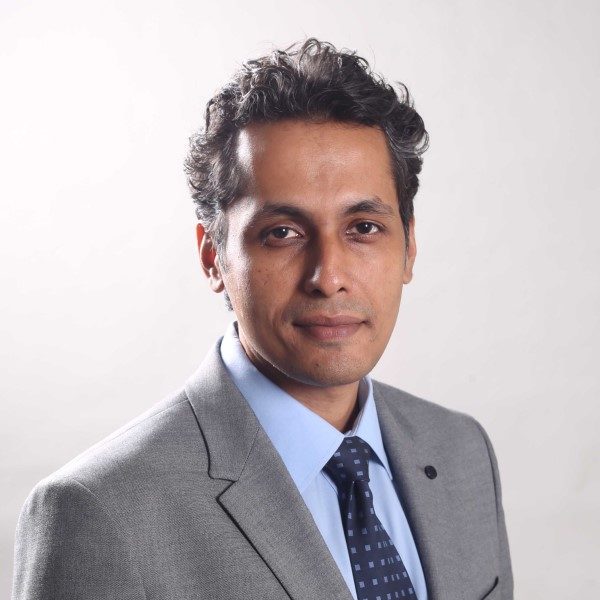In August 2014, the Ministry of Finance constituted a reforms committee to examine India’s insolvency laws and suggest changes for making the system effective. The committee issued its first report in February 2015. Although this report was set in the context of the insolvency law provisions of the Companies Act, 2013, it was intended to serve as an approach paper for the Insolvency and Bankruptcy Code, 2016 (IBC). It evaluated the historical causes for failure of the Indian insolvency regime and outlined the policy objectives for designing an insolvency law for India.
The analysis and recommendations in this report served as the starting point for designing the IBC. Among other suggestions, the report recommended collapsing the multiple steps for insolvency resolution of a debtor as envisaged under the Companies Act into a single streamlined process wherein the creditors could decide to rescue or liquidate the debtor on the basis of its economic viability within a strict time-period. The current insolvency resolution process under the IBC is largely modeled on this recommendation.
The report also identified amendments for operationalizing the National Company Law Tribunal, which had been embroiled in litigation for several years.
It also recommended an out-of-court administrative restructuring mechanism for small and medium enterprises, which was later recognized and implemented by the Reserve Bank of India (RBI) under its 2016 ‘Framework for Revival and Rehabilitation of Micro, Small and Medium Enterprises (MSMEs).
In a recent IBC case (Mobilox), the Supreme Court cited this report to explain the historical treatment of the term ‘disputed debt’ under the old insolvency regime to determine the meaning of the term ‘dispute’ in the context of operational debt under the IBC.
About the Authors

Debanshu Mukherjee
Debanshu is one of Vidhi’s Co-Founders. He has over a decade of experience in commercial laws and the financial sector and has advised the Government of India on several legislative projects in this space. He was instrumental in advising the Government on the design and drafting of the Insolvency and Bankruptcy Code and its subsequent implementation. He has developed and curated Vidhi’s work on insolvency law, corporate law, financial regulation, and competition law and conceptualized its Bankruptcy Research Program. He has served as a member of a Government-appointed committee for operationalizing the National Company Law Tribunal and deposed before two Parliamentary committees examining financial sector legislation. He has also worked as a teaching fellow at Harvard Law School.
He is an alumnus of the Harvard Law School, the University of Oxford, and Hidayatullah National Law University. He attended Harvard as a Fulbright Scholar and was awarded the Irving Oberman Memorial Prize in Bankruptcy and the Dean’s scholar prize in Corporations. He was also awarded a Distinction for his graduate studies at Oxford. In 2017, he was selected for NYU School of Law’s Hauser Global Scholarship, which he waived. His academic work has been published in peer-reviewed journals and an edited book published by Cambridge University Press, New York. He has been consulted by and mentioned in global business publications, such as IFR Asia and The Economist. Earlier, Debanshu practiced as an M&A and regulatory lawyer with AZB & Partners at its Mumbai and New Delhi offices.

Arghya Sengupta
Arghya is the Founder and Research Director at Vidhi. His areas of specialisation are constitutional law and regulation of the digital economy. He has served on a number of government committees including the B.N. Srikrishna-led committee of experts on a data protection framework for India.
Arghya has a number of academic publications on the Supreme Court and the Constitution in leading law journals such as Law Quarterly Review and Public Law. He is also a columnist at The Telegraph and The Times of India. He has most recently authored a book “Independence and Accountability of the Indian Higher Judiciary” (Cambridge, 2019) which builds on his doctoral work at Oxford University. Prior to founding Vidhi, he was at Oxford as a Lecturer in Administrative Law at Pembroke College.

Alok Prasanna
Alok Prasanna Kumar is Co-Founder and Lead, Vidhi Karnataka. His areas of research include judicial reforms, Constitutional law, urban development, and law and technology. He graduated with a B.A. LL.B. (Hons) from the NALSAR University in 2008 and obtained the BCL from the University of Oxford in 2009. He writes a monthly column for the Economic and Political Weekly and has published in the Indian Journal of Constitutional Law and National Law School of India Review apart from media outlets such as The Hindu, Indian Express, Scroll, Quint and Caravan. He has practiced in the Supreme Court and Delhi High Court from the chambers of Mr Mohan Parasaran, and currently also co-hosts the Ganatantra podcast on IVM Podcasts.

Anjali Anchayil
Anjali worked as a Project Fellow at the Vidhi Centre for Legal Policy.

Shreya Garg
Shreya is a Senior Resident Fellow, and leads the work at the intersection of law, finance and development at Vidhi. She is currently focusing on independent research work relating to financial inclusion, tech and corporate governance. She has worked on several engaged projects with the International Financial Services Centres Authority, Ministry of Corporate Affairs and the Insolvency and Bankruptcy Board of India. Shreya completed her LLB from National Law University, Jodhpur in 2012 and LLM from Queen Mary, London on a Chevening scholarship in 2019. She also worked with the European Bank for Reconstruction and Development, London in 2019. Prior to joining Vidhi in 2014, she worked as an Associate at Luthra & Luthra Law Offices, New Delhi.

Yashaswini Mittal
Yashaswini Mittal was a Research Fellow at Vidhi.

Faiza Rahman

Shubhangi Bhadada

Subramanian Natarajan
Subramanian Natarajan was a Project Fellow at the Vidhi Centre for Legal Policy.

Jeet Shroff
Jeet Shroff was a Project Fellow at the Vidhi Centre for Legal Policy.

Chintan Chandrachud
Krishnaprasad K.V.
Krishnaprasad K.V. was a Project Fellow at Vidhi.









